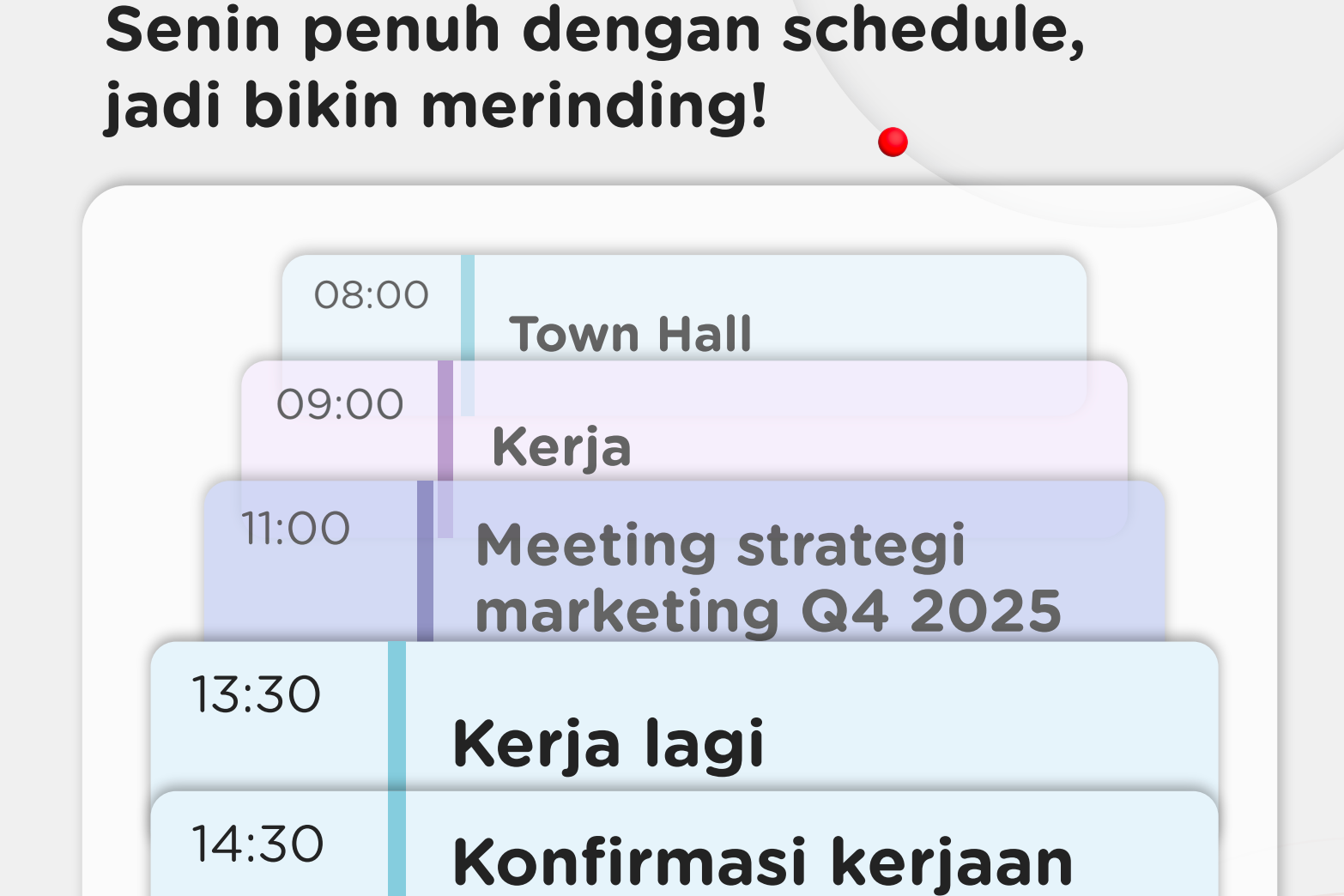16 June 2025
Managing a Busy Schedule: An Effective Strategy to Stay Productive Every Day
In today’s fast-paced world, having a packed schedule has become an integral part of life for many—whether students, professionals, or entrepreneurs. Work demands, meetings, social engagements, and personal responsibilities often pile up within a single day, leaving us feeling overwhelmed and short on time. However, a busy schedule does not necessarily mean reduced productivity. With the right strategies, a hectic day can be transformed into a catalyst for greater achievement.
Why Is Managing a Busy Schedule Important?
A tight schedule is not inherently problematic—as long as you know how to manage your time and energy well. Otherwise, it may lead to:
Excessive stress and burnout
Declining work quality
Lack of time for yourself and loved ones
Poor decision-making due to fatigue
Managing your time efficiently allows you to remain calm, focused, and productive—even amidst chaos.
Signs Your Schedule Might Be Too Full
Before learning how to manage your time effectively, it’s essential to recognize the warning signs that your schedule may be too demanding:
You constantly feel like you're running out of time
There’s no break between activities throughout your day
You find it hard to decline invitations or requests
You feel guilty when taking a break
You’ve lost control over your personal priorities
If two or more of these apply to you, it may be time to reconsider your time management approach.
Practical Strategies for Managing a Busy Schedule
Here are some effective steps you can take to manage a packed schedule more efficiently:
1. Clearly Define Your Priorities
Apply a method of prioritizing based on urgency and importance. Categorize your tasks into four groups:
Urgent and important
Important but not urgent
Urgent but not important
Not urgent and not important
Concentrate on tasks that are important and have long-term impact.
2. Utilize Digital Calendars
Make use of tools like Google Calendar or Outlook to structure your schedule. Allocate time slots for work, meetings, personal activities, and rest.
Tip: Don’t treat your calendar as a simple note-taker—use it as a daily guide you actively follow.
3. Practice Time Blocking
Time blocking involves dividing your day into dedicated blocks for specific activities.
For example:
08:00–10:00: Deep work session, no interruptions
12:00–13:00: Lunch break
15:00–16:00: Respond to emails and messages
This method helps reduce multitasking and increases concentration.
4. Learn to Say “No”
One common reason for an overloaded schedule is the tendency to say yes to every request. Learning to decline politely is a vital skill to protect your time and energy.
5. Delegate Tasks
If you work in a team, don’t hesitate to delegate tasks that others can handle. Focus your efforts on responsibilities with the highest impact—especially those only you can fulfill.
6. Schedule Time for Yourself
Incorporate rest, light exercise, or daily reflection into your routine. Taking time for yourself is not a waste—it’s a long-term investment in your mental well-being and sustainable productivity.
7. Review and Adjust Weekly
At the end of each week, take 10–15 minutes to review your progress:
Were your weekly goals achieved?
What took up too much time?
Which activities added little to no value?
Use your findings to refine your schedule for the upcoming week.
A packed schedule can be challenging, but it’s certainly manageable. With a structured approach, the right tools, and a clear sense of priorities, you can move through your days with greater balance and intention. Remember—time management isn’t about doing as much as possible, but about making time for what truly matters.
Visit our official website at mycarrier.telkom.co.id to discover more valuable insights and the latest updates from us.
Is this information helpful?
